George Weah, Liberian outgoing president was a former professional footballer. He played as a striker in his prolific 18-year professional football career which ended in 2003. Weah, man of many first, is the first African former professional footballer to become a president.
After beginning his career in his native Liberia, Weah spent 14 years playing for clubs in France, Italy and England. He represented Liberia at the international level, winning 75 caps and scoring 18 goals for his country and playing at the Africa Cup of Nations on two occasions.
He also played in a friendly in 2018, where his number 14 jersey was retired. Regarded as one of the best players never to have played at the FIFA World Cup, Scott Murray in the Guardian referred to Weah as “hamstrung by hailing from a global minnow”.
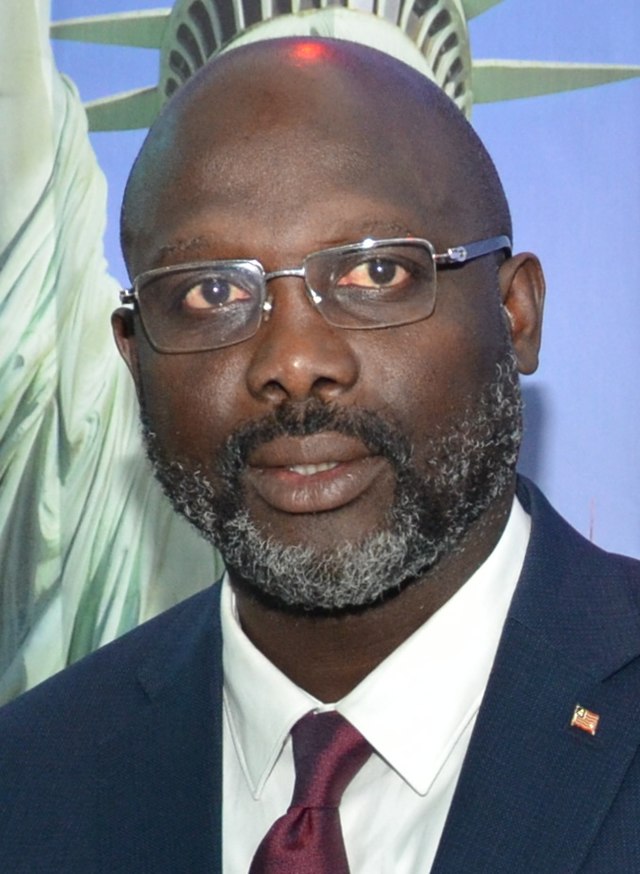
Widely regarded as one of the greatest African players of all time, in 1995, Weah was named FIFA World Player of the Year and won the Ballon d’Or, becoming the first and only player to win these awards while representing an African country internationally.
In 1989 and 1995, he was also named the African Footballer of the Year winning the official award twice, and in 1996, he was named African Player of the Century. Known for his acceleration, speed, and dribbling ability, in addition to his goal scoring and finishing, Weah was described by FIFA as “the precursor of the multi-functional strikers of today”. In 2004, he was named by Pele in the FIFA 100 list of the world’s greatest living players.
After he retired from professional football, Weah became involved in politics in Liberia and formed the Congress for Democratic Change where he ran for president in the 2005 election but lost to Ellen Johnson Sirleaf in the second round of voting. He ran again in 2011 for vice president alongside Winston Tubman but lost again.
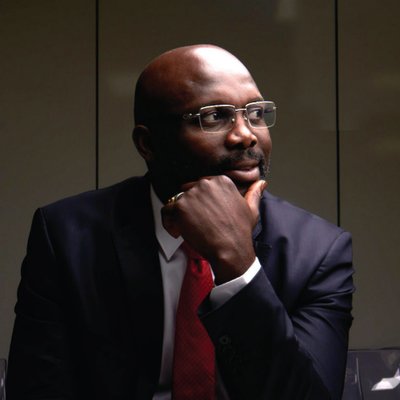
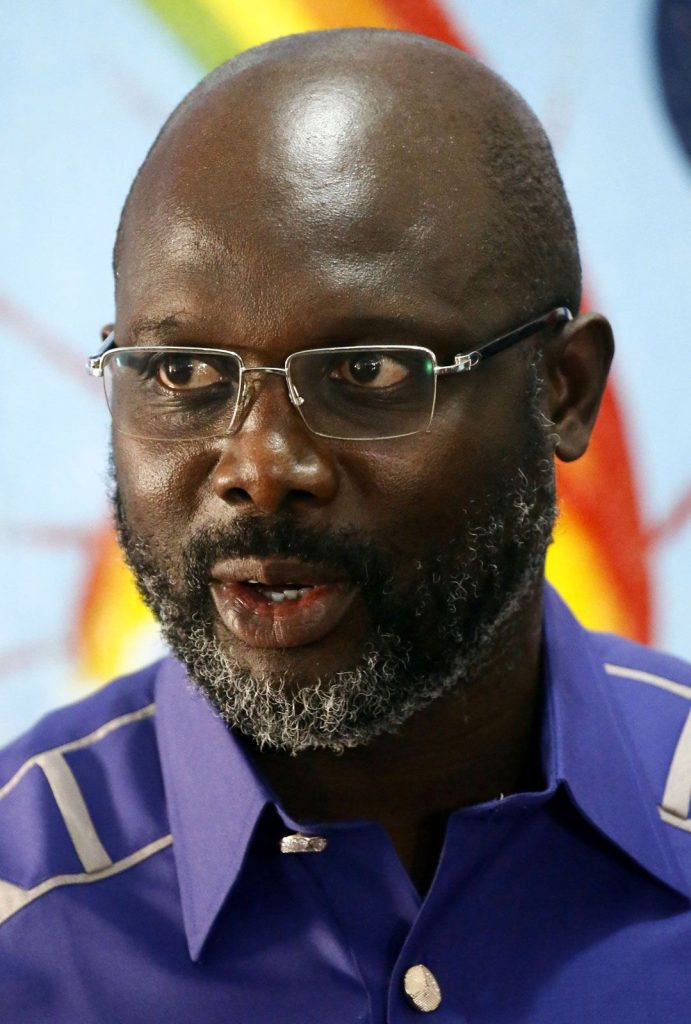
He never backed out of politics after both defeats. He ran for senate and was elected into the Senate to represent Montserrado County in 2014.
After his time in the senate, Weah contested and was elected President of Liberia in the 2017 election defeating the incumbent vice president Joseph Boakai, and was sworn in on 22 January 2018 and became the fourth youngest-serving president in Africa and the 25th Liberian president at that time.
During his campaign, he promised to fight corruption, reform the economy, combat illiteracy and improve life conditions of Liberians. After he assumed office in his first address to the legislature, he reduced his salary and other benefits by 25% with immediate effect.
“With the assessment that I gave you earlier of the poor condition of our economy, I believe that it is appropriate that we should all make sacrifices in the interest of our country. According to Article 60 of the constitution of Liberia, the salaries of the President and the Vice President are established by the Legislature of Liberia and cannot be increased or reduced during the period for which they are elected.
“However, in view of the very rapidly deteriorating situation of the economy, I am informing you today, with immediate effect, that I will reduce my salary and benefits by 25% and give the proceeds back to the Consolidated Fund for allocation and appropriation as they see fit,” he said.
However, the Liberian dollar dropped by a third against the US dollar and in 2019, inflation went to an all-time high at 30%. The inflation led to protests in Monrovia and Washington, D.C tagged “Save the State.”
On other reforms, President Weah signed a drug bill into law which was passed by the Legislature after months. The law aimed to regulate, restrict, control, limit, and eradicate the illegal export and importation as well as the flagrant use, abuse, and proliferation of narcotics within the nation.
In the educational and healthcare sector, Weah constructed and renovated schools to ensure children had better education and better learning environments for their learning experiences. While during his time also, the healthcare sector in Liberia improved significantly.
His administration invested into healthcare, infrastructure, and medical equipment. The president touched on various facets in the sector which included construction of clinics and hospitals. He also deployed many medics to poor and underserved areas of the country. He also built health insurance programme in the country.
Weah was defeated in a rematch with Boakai in the November 2023 rerun election. 57-year-old Weah called Boakai after the country’s National Elections Commission (NEC) released results. Boakai, a 78-year-old former vice president of Liberia, won 51% of the votes, after the final results were tallied by the elections commission.
President Weah in a speech before the final results were released said: “The results announced tonight, though not final, indicate that Ambassador Joseph N. Boakai is in a lead that we cannot surpass. Therefore, a few minutes ago, I spoke with President-elect Joseph N. Boakai to congratulate him on his victory.
“Tonight, as we acknowledge the results, let us also recognise that the true winners of these elections are the people of Liberia,” he said. Weah becomes the second African president to concede defeat after losing re-election. Culled from the internet

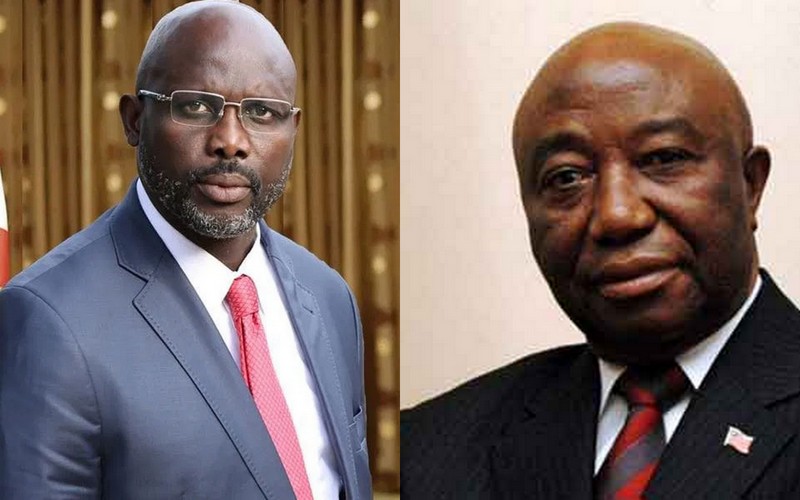



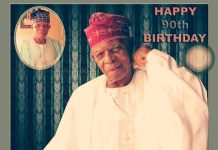









Fantastic site Lots of helpful information here I am sending it to some friends ans additionally sharing in delicious And of course thanks for your effort
cialis 5 mg for sale
cialis 5 mg for sale
can you buy priligy in usa 6, range 3 93; Table 1
priligy medicine Your doctor may suggest that you see a physical therapist to help treat the lymphedema with massages, compression, and special exercises
What i do not realize is in truth how you are no longer really a lot more smartly-appreciated than you might be now. You are so intelligent. You know therefore significantly in the case of this subject, made me in my view imagine it from so many various angles. Its like women and men don’t seem to be interested unless it is something to accomplish with Girl gaga! Your own stuffs excellent. At all times take care of it up!